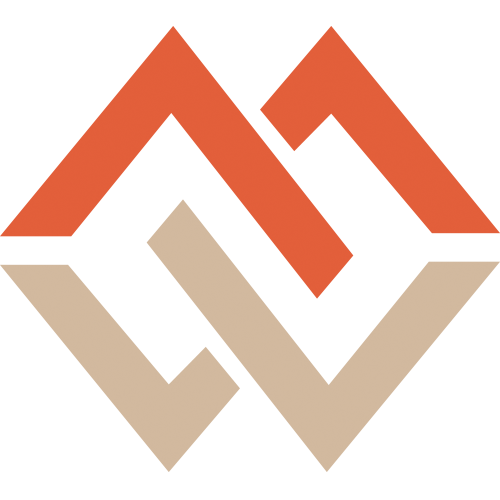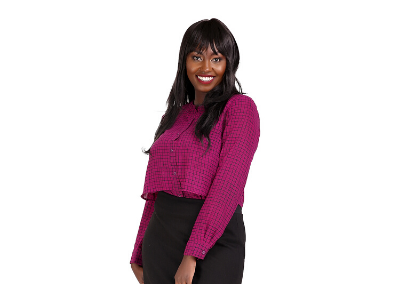Keep Your Eye On The Mark
Whitney Mwangi
Communications, Advocacy and Partnerships Specialist | African Union Commission
“When I was 6, I was a great swimmer. In November 1998, the school I was in hosted a massive swimming competition which brought together several neighboring schools to compete and secure awards. I had always emerged first during in-house swimming competitions. I remember being super excited yet anxious because winning this meant earning a beautiful gold (well…probably gold-coated) medal to show off to all my neighbours and relatives. When my day to shine came, I dived into that pool like I owned it but as I was about to make that final stroke to touch the wall and mark a win, I lifted my head out of the water and turned to confirm if I was the winner. In that very moment, the swimmer behind me touched the wall. I missed the mark – that one time when it really mattered. From this short recount, you can draw many lessons but mine was: Always keep your eye on the mark. Stopping to look around is a fine recipe for comparison, delay and fear. Importantly, set the mark yourself and set it high. Life is too short for unambitious goals.”
What led you to your career path?
When I left high school, I was sure I was going to pursue Civil Engineering. I have always loved Sciences and pursued all –even Homescience at a point! I visited the University of Nairobi to inquire about requirements for joining the Civil Engineering program and learnt that as long as I had a straight A’s in Chemistry, Biology, Physics and Mathematics then I was good to go! That was not the case so I had to figure out a plan B.
I thought about writing, how it was my go-to source of enlightenment and how I would not mind spending the rest of my life doing it. For a moment, I was scared that being a ‘writer’ was not as prominent as being an ‘engineer’. I worried that my mother would be of the opinion that I am settling for less after years of scholarly excellence and that I would be less in the eyes of my social circle. Back then, I was hanging out with individuals who had received scholarships to join Ivy League Schools.
In spite of my fears, I proceeded to join the School of Journalism at the University of Nairobi. My mother was very proud and supportive. Turns out my friends did not care either, as long as I was available for the parties and down for Truth or Dare Game.
Today, you are in the field of health policy and advocacy. How did you transition into this from just wanting to be a writer?
That time came when I needed an internship as part of my coursework and my aunt introduced me to the Editor of ScienceAfrica, Mr. Ootulah Owuor. He interviewed me for an internship as a Science Writer and the following week, I ceremoniously launched my new workstation at Science Africa with a mug of coffee and chocolate doughnuts.
It was a rough beginning because I neither knew Leishmaniasis nor the correlation between CD4 versus Viral Load. Favour was on my side because Mr. Owuor held my hand through it all. Often, he would gather his staff in his office and he would take us through techniques of first understanding the technical concept and then crunching it into a something easy for the ordinary citizen to understand. “Write like you’re writing for a goat,’ one of my colleagues would often joke. He would also run us through the strengths, weaknesses and opportunities for improvement of our submissions.
My work at Science Africa introduced me to the Media for Environment, Science, Health and Agriculture (MESHA) Kenya. Under the wings of MESHA Kenya, I undertook a Science Journalism Fellowship Program by World Federation of Science Journalists for one year. I was also introduced to Internews Kenya through whom I undertook a Data Journalism training by European Journalism Centre. I also met so many mentors who have over the years recommended me for health-related opportunities and jobs.
Overall, one opportunity led to another and my network proved to be my net worth. It did not feel that straight-forward though. I was ever fearful that I was drifting into becoming a scientist rather than a creative. The one thing that definitely kept me going down this path was the pleasure I take in learning. Look backing, I believe everything came together – my love for Science and my passion for writing.
What was the turning point of your career?
Besides joining Science Africa, it was going out for a drink with one of my co-workers. That night, her brother joined us and he asked me what I did for a living. I told him I was pursuing a BA in Communication and he was rather unimpressed. “Just Communications? Come on, everyone is doing that course and if you’re not careful the only Communication you will end up doing is illegal printing and pasting of posters about witchdoctors at night as you hide from the City Council Officials. Of course, my friendship with that family ended that day, but I recognised that the young hater man was spewing truth to a great extent. I had to stand out.
The next day, I wrote down a list of everything I believed a Communications person should be able to do. I then set out on a journey to tick them off my to-learn list. I started with graphic design, photography, web design as units at the University of Nairobi. I started training at the Multimedia University as a radio presenter, where I also learnt how to edit videos and audio. I also took up a position as Editor-in Chief for Culture Beez Magazine at AIESEC Kenya so I could put the theory into practice and learn management as well.
I juggled all this at the same time. So, as you can imagine I had zero friends and free time at this point. In one of my blogs: How It Is Daring To Evolve: I write about how I was ever dosing off, even while on a date. The grit and skills earned have given me an edge over other candidates over the years. I have since remained on the lookout for opportunities and whenever I get one, I work tirelessly and furiously.
What has been your proudest achievement?
There were times when I could have demeaned “Communication” as an expertise and given up but I opted to trust the process and keep going. I am proud that I kept my eye on the mark and today, I have clear boundaries on what I want my career to look like, what I should be getting out of it and not settling for less.
Paint for us a scene of your vision for your future in this field.
I will be sitting in a beautifully branded office on my robust, rotating, leather seat overlooking the leafy-green wealth of Kenya as I strategise on how to empower budding professionals in the field of communication. At this point, I will be owning a consultancy firm which caters to various Global Communication needs in the development sector. I will also be a published author leading a powerful, life-changing, global storytelling platform called the Story Book. Amen? Amen!



No Comments
Sorry, the comment form is closed at this time.